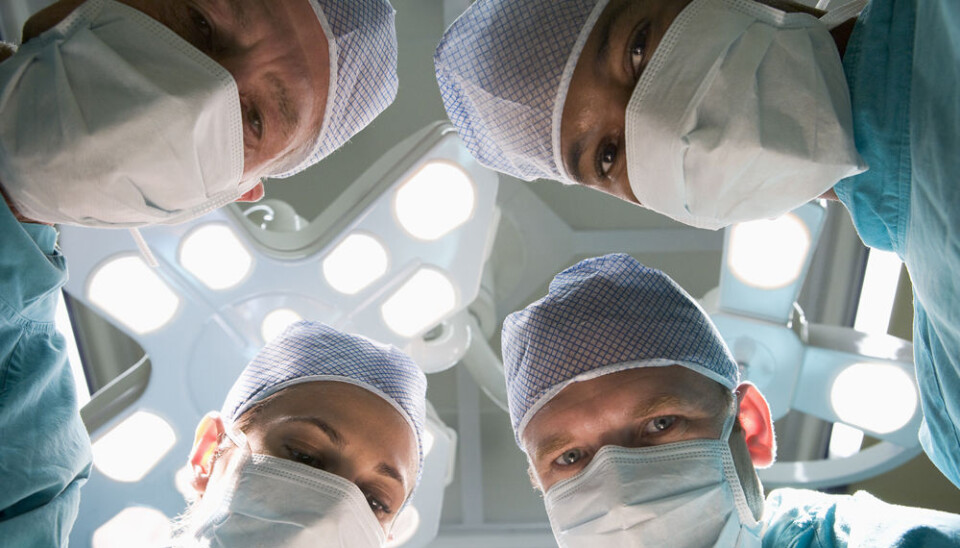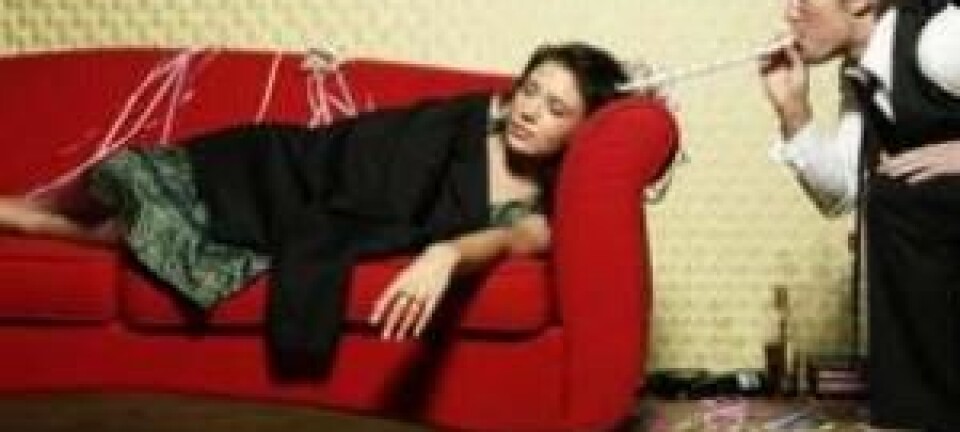
Doctors get hangovers from night work
Night work leaves doctors fatigued, uneasy and unfocused, a new hospital survey reveals. Researchers fear these 'hangovers' could affect the patients.
Night work has a negative effect on doctors' well-being. The late hours could affect their circadian rhythm and exhaust them to a degree where they only recover after a few days, and some even need painkillers to relieve their discomfort. They compare it to a hangover.
In a study, carried out at Herlev Hospital in Copenhagen, Denmark, doctors on frequent night shifts were asked a series of personal questions.
“The doctors all view their tiredness the same way,” says Dr Ilda Amirian, who conducted the study in collaboration with her supervisor, Professor Jacob Rosenberg. “They feel that the night work affects their cognitive abilities. The fatigue seems to instinctively slow down their work.”
Night work conflicts with nature
The doctors' statements should come as no surprise considering that through evolution it has become natural for man to sleep at night and be awake during the day. The circadian rhythm is regulated by melatonin, a hormone which regulates when we need to sleep.
It is common knowledge that people who stay up at night because they're unable to sleep make more mistakes.
- Dr Ilda Amirian
The body's formation of melatonin relies on light stimulation. The melatonin production increases in the evening and the levels remain high over the course of the night, while it reaches a minimum in the morning, which is when we wake up again.
Further research needed
Ilda Amirian is keen to point out that her survey is limited to a subjective impression of how night work affects the doctors' well-being and their ability to work. It does not say whether the late hours really have a negative effect on their health.
To that end, she is now planning a new study together with her supervisors Dr Ismail Gögenur and Professor Rosenberg. This study sets out to answer that question, along with trying to find out how much the night work reduces the quality of their work, and to which degree it affects the patients.
This study will involve monitoring the doctors while they work at night by means of blood tests and using various forms of electronic equipment.
As a doctor I have tried some demanding night shifts. It sometimes took me at least a full day to recover from it.
- Dr Ilda Amirian
“The quality of the doctors' work can decide whether a patient lives or dies,” she says. “That's why it's so important to determine what effect night work has on the patients.”
Night work is a necessary evil
Amirian is not trying to prove that doctors should stop working at night because there will always be patients who require urgent treatment.
“Instead of pointing fingers and saying that night work is irresponsible, we would like to find some ways of making the best of a bad situation. Perhaps it would help to try and define the limits of how many successive hours it is safe to let doctors work,” she says.
Previous studies have shown that mistakes start creeping up when people have been awake for more than 24 hours. But the more demanding and complicated the task, the sooner participants started displaying signs of a decline in logical and clear thinking.
Amirian's interviews also revealed that doctors try to get the most demanding tasks out of the way early in the day and where possible, stick to routine work at night. This line of thought was particularly apparent between 2am and 6am, when the tiredness peaked.
Power-napping and improved scheduling could be the way forward
The team will now look into whether it makes a difference to use eight-hour night shifts instead of 24-hour shifts. They will also take a closer look at what time of day the doctors check in on their shifts.
“Perhaps we could have a change of guard in the middle of the night instead of in the afternoon. That way you get a fresh person in at the most critical time,” she says.
Another solution could be to let the doctors have a power nap at the most critical hours or just before an operation. Experience has shown this to be an effective way of keeping the doctors alert. The team will also be testing this theory.
The new study is expected to be completed in January 2012.
Read the article in Danish at videnskab.dk
Translated by: Dann Vinther








